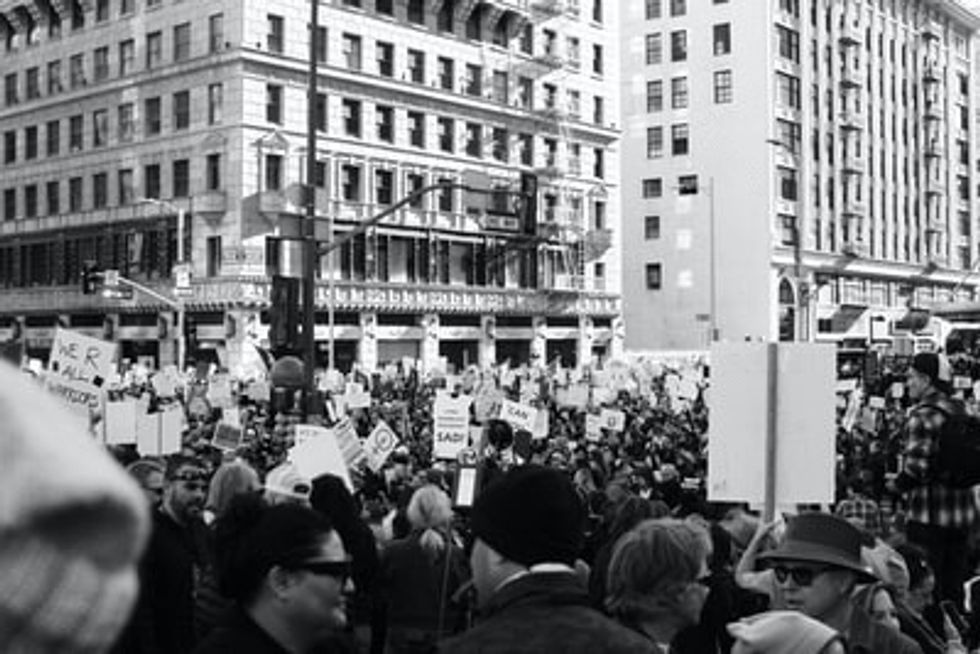Protests have been an integral part of humanity for centuries. It has been the language of the unheard against oppressive figures, and the action of the angry. The act of protesting has altered society every generation past and present with people standing up to the political nature they do not agree with. The historical and hopefully revolutionary protests after the grotesque and horrific death of George Floyd across all fifty states and a multitude of foreign countries prompts a question: when else have protests filled the streets to change the tune of society? Listing and explaining the mass amount of protests throughout world history would be too much to do and read, so instead here is a quick telling of some of the most important protests that changed society and history.
The Protestant Revolution
Even if you did not take a higher level history class, you were bound to be taught about the Protestant Revolution during High School. The long, complex years that encompassed the Protestant Revolution was brought about from the protest done by Martin Luther with his pinning of 95 Theses to a church door in Wittenberg in 1517. This simple act of publicly expressing his absolute displeasure with the Catholic Church ended up being a key catalyst for a revolution that would ultimately change the political, religious, and cultural climate throughout all of Europe for the rest of history.
The Boston Tea Party
The Boston Tea Party in 1773 is one of the most important and well-known aspects of American history and lead up to gaining our independence. The protest against the Tea Act which imposed hefty taxes upon the tea in the colonies along with the overarching taxation without representation caused mass amounts of attention upon the disdain many colonists felt against these acts. By pushing hundreds of crates of tea into the water, the colonists affirmed their anger felt by the taxation on the cherished drink - one of the last straws to be pulled by the British rule. In the aftermath of the dumping of tea into the Boston Harbor ultimately became an integral part of gaining more followers for the Revolutionary War against the British rule. This protest became an iconic example of increasing the already thick tension to cause change within society.
Riots and Protests After Assassination of Martin Luther King, Jr.
In the height of the anger and grief of the horrific death of Martin Luther King, Jr. on April 4th, 1968 along with the discriminatory policies and rampant racism, civil unrest was spurred on. The death of King echoed throughout American cities such as Washington and Baltimore where the mourning soon shifted into riots and protests. In a direct parallel to what is occurring in America currently with the protests from George Floyd's murder, protesters and rioters burned businesses and looted. The constant protests and riots in countless cities stretching from Los Angeles to New York City are considered to be the last needed shove for Congress to pass the Fair Housing Act also known as the Civil Rights Act of 1968.
Berlin Wall Protests
Five days after the massive protest in East Berlin, the Berlin Wall would come toppling down. Other protest and reform movements in the communist bloc inspired and fueled the salient protest of the fall of the Berlin Wall and democracy. The protests did not start only five days before the fall of the wall on November 9th, 1989 - they started a month beforehand in the city of Leipzig on the 40th anniversary of East Germany. During those protests and the continuation of them, free elections were asked for by West Germany along with reform from East Germany. On October 31st the numbers calling for democracy in East Germany reached the feverish number of half a million. Five days later - it fell. These protests are considered the last push needed for the wall to come crumbling down.
Protests are the shouts of the unheard - the screams of the angry. These shouts and screams have been heard throughout the centuries of written history. Revolutions and reforms have been sparked by people protesting in the streets. In the height of unrest, frustration, and desperation - protests will be the actions done to display these emotions. These civil unrests change history, they change politics, they change our world for the better. Already the protests that are in our streets right now are causing change with the arrests and charges of the former officers in George Floyd's killing, along with other things changed for by the protestors. Protests will continue for the rest of our human history and will continue to spark change within every aspect of our society.












